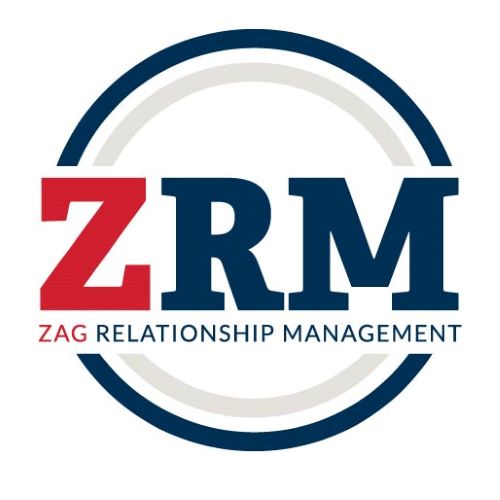Enhancing Student Support at Gonzaga

Building on the success of the Student Success CRM kickoff project, the Student Outreach and Support (SOS) project enhanced the university’s ability to strategically support students’ well-being throughout their academic journey. SOS is the new and improved Refer process whereby a person who is concerned about a Gonzaga student can request support for them. By focusing on a holistic approach to student success, SOS is a more integrated and student-centric support system that addresses various aspects of student life.
BUILDING THE SUPPORT TEAM
SOS introduces a mindset shift from simply referring students to actively supporting them. The SOS process encourages faculty and staff to be part of the solution, fostering a collaborative approach to student well-being. This change has created a sense of community and shared responsibility for supporting students.
Jennifer Fountain, Dean of Student Wellbeing, emphasized, "The person submitting the report is part of the solution... It's not a referral, it's a ‘let's work together as a team.’"
The person submitting the report is part of the solution... It's not a referral, it's a ‘let's work together as a team.’
Adrian Reyes, Director of Case Management in the Center for Cura Personalis (CCP), noted that the new system also helped in building rapport and partnerships with faculty by involving them as team members in the support process.
The implementation of SOS required increased collaboration across multiple departments, including Health and Counseling Services, International Student & Scholar Services, Housing and Residential Life, Athletics, and more. By encouraging interdisciplinary conversations, the project has created a more cohesive support system. This collaborative approach ensures that students receive comprehensive support from various areas of the university.
We had to create some interdepartmental collaboration that didn't exist before.
"We had to create some interdepartmental collaboration that didn't exist before," Fountain said.
The SOS project focused on enhancing the existing Salesforce Student Success CRM and implementing additional automations. The first major flow enhanced the capabilities for assigning cases based on form input and notifying the relevant personnel.
Previously, all referrals were sent to the Center for Cura Personalis (CCP). With the new automations, CCP is assigned the parent case, and other departments responsible for specific concerns are immediately assigned child cases and receive notifications. Automating case creation and notifications ensures that student issues are promptly addressed by the relevant teams, leading to quicker resolutions and a more supportive environment.
Additionally, ITS built an integration that provides case managers the ability to read on-duty notes created in StarRez from within the CRM. While Residence Directors continue to use StarRez primarily, on-call duty notes provide critical context for CCP case managers, who gain a comprehensive understanding of the student's situation.
Improvements to communication and collaboration between departments across campus also emerged. Health and Counseling Services (HCS), new to the referral process, worked closely with the ITS business analysts to define their workflow for student SOS cases, including internal staffing needs, expectations, and schedule rotation. These sessions helped visualize the future state functionality to enhance SOS case management in the CRM.
With interdepartmental collaborations coming into play, data security and privacy heavily influenced the system design. The ITS staff worked closely with each team to determine what information should be shared with other departments, which informed the development of additional permissions, shared dashboards, and reports to make it easier for staff to manage cases without sharing confidential information outside of appropriate channels.
The impact of the SOS project was evident within the first two months of its implementation. The number of referrals increased significantly, with nearly 200 SOS forms submitted in the initial period. This was a substantial improvement compared to the previous system, which often failed to capture all the work being done. The streamlined process allows for better tracking and management of cases, ensuring that students receive the support they need promptly.
LOOKING FORWARD
As the project continues to evolve, it promises to further enhance the support network for Gonzaga students, ensuring that they have the resources and support they need to thrive. The journey of the SOS project is a great example of how innovation, collaboration, and a shared commitment to student success can bring Gonzaga’s mission of Cura Personalis to life.
Fountain emphasized that the success of the project was a testament to the power of bringing together different cultures and perspectives.
"We took two cultures and made it into one so that we could develop a product and an outcome that really was a benefit to our campus”, Fountain said. “I think this is a perfect example of de-siloing.”
We took two cultures and made it into one so that we could develop a product and an outcome that really was a benefit to our campus. I think this is a perfect example of de-siloing.
CORE PROJECT TEAM:
The core project team included Jennifer Fountain, Dean of Student Wellbeing, Adrian Reyes from Center for Cura Personalis, Charmayne Adams from Health and Counseling Services, as well as Chris Barton, Hannah Cylkowski, Preeti Gosavi, Larissa Robinson, Vipul Saxena, Amy Smith, Mary Jean Spadafora, Chelsea Tau’a and Ram Yadlapalli from ITS.
If you have a concern about a student and would like to submit a report, please submit your referral Student Outreach & Support | Gonzaga University.
